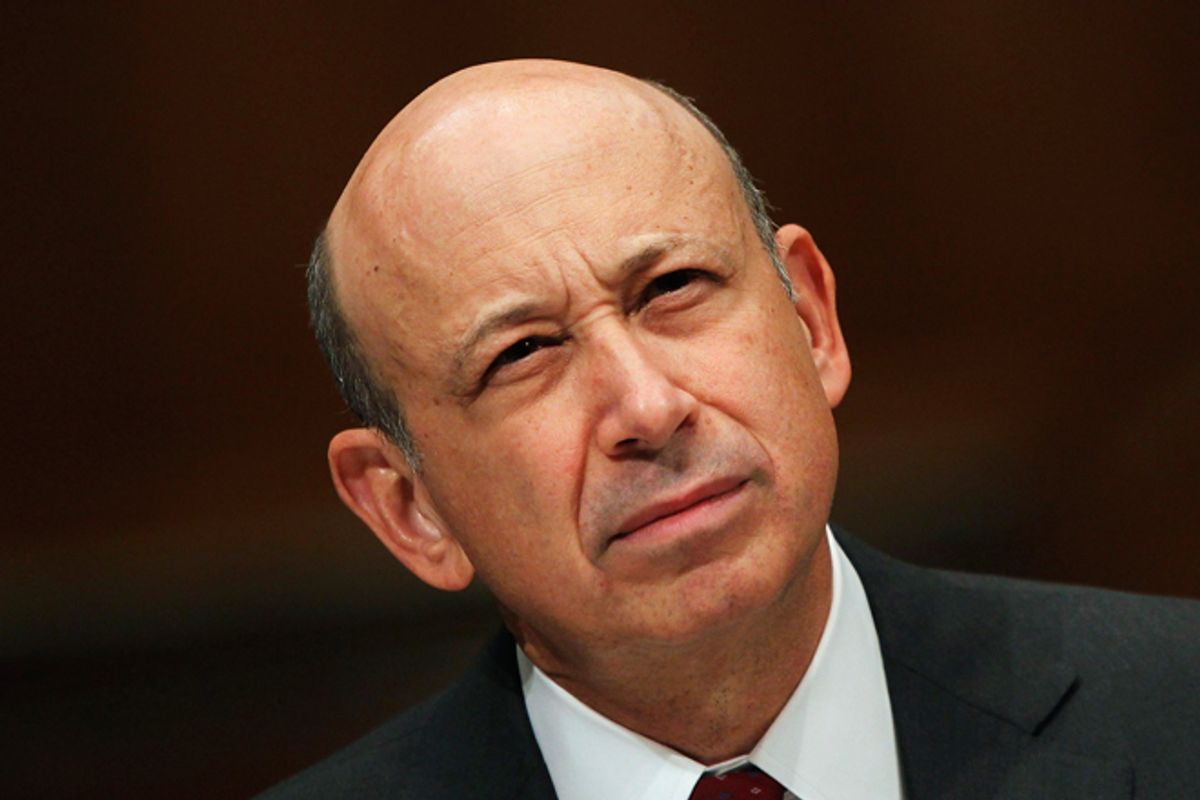Big banks' deleterious effect on homeowners, and a range of other actors in the American economy, has finally started to get some attention. But a new report from a union-backed group suggests that they have also exploited their own staff, with nearly a third of bank tellers depending on public assistance.
“Banks’ internal employment practices, just like their external practices, increasingly drive inequality,” writes the Committee for Better Banks, a coalition that includes the Communications Workers of America union and New York Communities for Change, the ACORN offshoot that has spearheaded organizing for the city’s fast food strikes. The coalition says it spoke with 5,000 employees in non-glamorous bank jobs. Based on interviews and surveys, it alleges abuses ranging from working off the clock to being denied bathroom breaks. Compared to men in the surveys, women reported more elevated work-related stress, “unfair treatment,” and part-time employment; compared to white workers, workers of color were overrepresented in banks’ lowest-paid jobs.
“Many survey respondents,” the authors write, “have described needing to sell products in order to meet the goals, regardless of the actual benefit to the customer.” They also charge that some divisions at some banks “take the distance between the projected and actual sales of an employee out of their paycheck so he or she remains indebted to the bank for as long as he or she works there,” a policy the report argues “can spur problematic, and often illegal, practices.”
“I was a confident and loyal employee,” an employee identified as Tyler B. is quoted saying in the report. “After being slammed daily for sales scores I started to have panic attacks and lost all pride in my work because it was never good enough.”
Citing research on tellers’ public assistance use conducted by the University of California at Berkeley Labor Center and echoing arguments leveled against Wal-Mart and McDonald's, Make the Road New York co-executive director Deborah Axt told the Washington Post, “This is the wealthiest and most powerful industry in the world, and it’s substantially subsidized by our tax dollars, money that we could be spending on childcare of pre-K.” A Wells Fargo spokesperson told the Post the bank “works hard to create a positive work environment for our team members and a culture of doing what is best for our customers.”
The report also charges that banks are threatening New York’s economy by shifting jobs out of the city and out of country in search of lower labor costs. It cites employees who were offered jobs outside New York with “better titles with more responsibility, but lower pay,” and an ex-JPMorgan dividends associate who “reported that he lost his $100,000 a year job to an employee in Bangalore, India, who was to be paid $5,000 for the same job.”
The groups behind the report argue their efforts can improve conditions for bank employees and customers alike. As In These Times’ Sarah Jaffe reported, “The hope is that empowered tellers and customer service representatives, who live in the communities where they work and know the customers they regularly serve, will help create more community-friendly banks.” The report closes with a series of recommendations for city and state government, arguing that opportunities to receive public subsidies and do business with the government should be contingent on job quality, disclosure of job info, whistle-blower protections and an agreement to start meeting with the Committee for Better Banks.



Shares